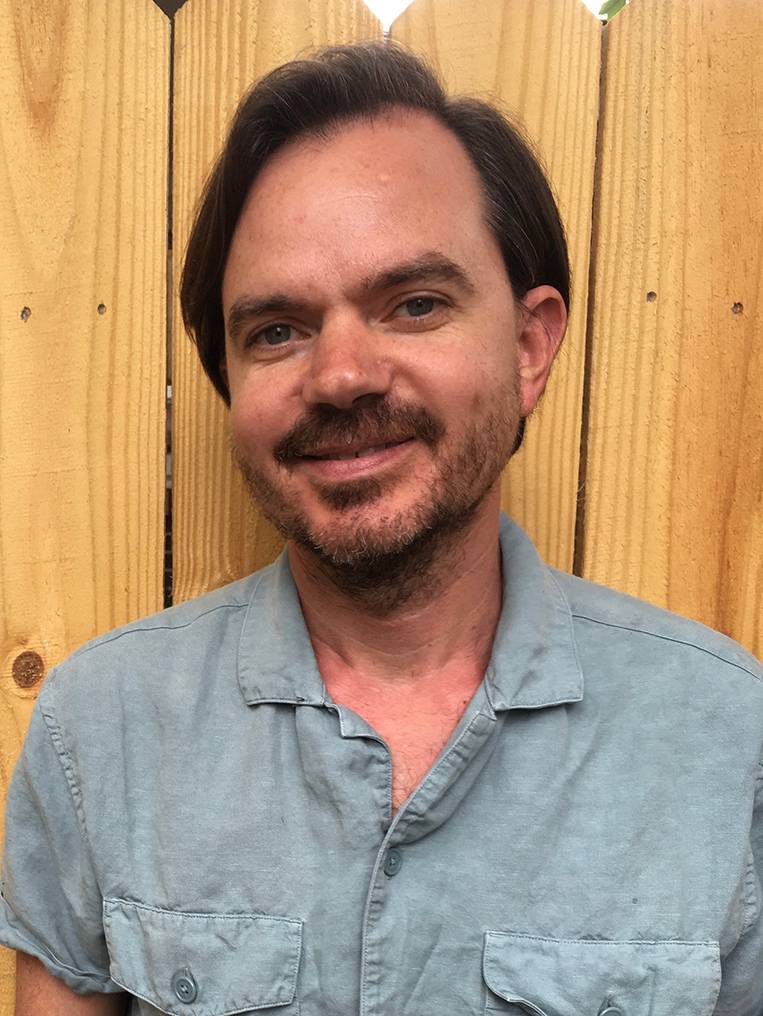Jayme Blaschke | May 27, 2021

Eric Sarmiento, an assistant professor in the Department of Geography at Texas State University, has been named one of seven inaugural recipients of the 2021 Early-Career Research Fellowships by the Gulf Research Program (GRP) of the National Academies of Sciences, Engineering, and Medicine.
The fellows were selected for the Human Health and Community Resilience track, which is one of three new fellowship tracks that GRP launched as part of a fellowship program redesign earlier this year. Beginning June 1, 2021, Human Health and Community Resilience fellows will spend the next two years pursuing research that contributes to advancing health equity and examines the social determinants of health in the Gulf states (Alabama, Mississippi, Louisiana Florida, and Texas) and Alaska.
Sarmiento joined the Texas State faculty in 2016 after completing his postdoctoral work at the University of Oxford in the United Kingdom. He completed his Ph.D. in 2015 and master's degree in 2012, both in geography, from Rutgers University, New Brunswick, New Jersey. He earned his bachelor's degree in 2008 in interdisciplinary perspectives on environment from the University of Oklahoma, Norman, Oklahoma. His research interests include urban development, cultural geography, political ecology, economic geography and social theory.
The Gulf states have faced decades of challenges that directly affect the health and well-being of people and communities: climate disasters such as hurricanes and floods, and the emotional distress that follows; a high prevalence of chronic diseases such as hypertension, diabetes, heart disease and asthma; and environmental contamination exacerbated by the Deepwater Horizon oil spill and other offshore accidents. In the wake of disasters, communities of color and low-income families have been overwhelmingly affected.
Fellows’ projects will explicitly focus on the root causes of individual and community health and well-being, known as social determinants of health (SDOH). These include food security, drinking water quality, transportation access, affordability and quality of housing, job opportunities and access to green spaces. Fellows will apply a health equity lens and consider SDOH in emergency preparedness, response and recovery activities. They will also work closely with communities to develop locally relevant resilience building strategies.
Since the awards are not attached to a specific project, the fellows are able to explore bold research ideas that they might not otherwise be able to pursue. All fellows are investigators, faculty members, clinician scientists or scientific team leads at colleges, universities and research institutions. Each receives a $76,000 financial award, mentoring support and a built-in community of current and past cohorts.
To learn more about the GRP's Early-Career Research Fellowships, visit nationalacademies.org/our-work/early-career-research-fellowship.
The GRP is an independent, science-based program founded in 2013 as part of legal settlements with the companies involved in the 2010 Deepwater Horizon disaster. It seeks to enhance offshore energy system safety and protect human health and the environment by catalyzing advances in science, practice, and capacity to generate long-term benefits for the Gulf of Mexico region and the nation. The program has $500 million for use over 30 years to fund grants, fellowships, and other activities in the areas of research and development, education and training, and monitoring and synthesis. Visit nationalacademies.org/gulf/gulf-research-program to learn more.
About the National Academies
The National Academies of Sciences, Engineering and Medicine are private, nonprofit institutions that provide independent, objective analysis and advice to the nation to solve complex problems and inform public policy decisions related to science, technology and medicine. The National Academies operate under an 1863 congressional charter to the National Academy of Sciences, signed by President Lincoln. For more information, visit nationalacademies.org/about.
Share this article
For more information, contact University Communications:Jayme Blaschke, 512-245-2555 Sandy Pantlik, 512-245-2922 |
